11am – Your Data Selfie
Digital Skills Education, Data Education in Schools
Daniel Devine, Craig Steele
Description
Join our YouTube livestreamed lesson where your pupils will combine computing, art, and data to create their own data-driven self-portrait.
In this practical workshop, pupils will learn about data visualisation and code a self-portrait using numerical personal data.
Our data experts will critique their self-portraits which will be showcased in our online portrait gallery.
Participants will follow instructions to edit and customise JavaScript code to create data visualisations based on data they collect about themselves.
Resources
- Teacher plays the YouTube livestream on projector
- Pupils take part individually on laptops/desktops
2pm – Game Design Part 1
West College Scotland
Dr Amanda Ford
The first game design session covering how to think about designing computer games. Feel free to join either or both sessions! Next session on Wednesday 8th at 2pm
Session 1 Game Design Basics
This lesson will cover the basics of game design and walk through how to start coming up with an idea for a game then how to take it further.
Resources
- paper/pencil
- Teacher joins team meeting and shares screen on projector
11am – Celebrate you with Swift Playgrounds (iPad)
Apple Education/Education Scotland
Suzanne Lustenhouwer (Apple Distinguished Educator)
Swift playgrounds is an excellent way to learn code on iPad. In Swift Playgrounds you have the ability to build apps directly on iPad. In this session pupils will do a real time introduction to developing their very first app on iPad.
Guided by an Apple Professional Learning Specialist, pupils will learn the approaches to take when building an app from the ground up.
This will be an interactive lesson with your class and ideally aimed for students P6 and up who have a familiarity with Swift Playgrounds on iPad.
Students will need an iPad with the latest version of Swift Playgrounds installed and the About Me Sample project downloaded. Teachers can download an Educator Guide here
Equipment needed in the classroom:
- Screen visible for all pupils to view the webinar
- Speakers/WiFi
- iPads for students with the latest update installed (check Settings – General – Software Update)
- Swift Playgrounds (up to date) & About Me Sample Playground downloaded (check app store or LA app library)
Having these steps carried out before the webinar ensures that everyone can take part without missing key steps/info.
2pm – Build your own AI smart classroom
Education Scotland
Brian Clark
Learn how you can use the power of artificial intelligence to control a (virtual!) smart classroom and get started exploring how to create with artificial intelligence.
In this project you will make a virtual classroom that can react to what you say to it.
You’ll be able to control the virtual devices in the classroom by saying what you want. You will teach the computer to recognise commands for different devices by giving it examples of each.
Resources
- Learners should have access to a device that has internet access to the Machine Learning for Kids website and Scratch
- Teacher joins team meeting and shares screen on projector
- Learners can work in pairs
11am – Create the next cool app – App Design Workshop
Inspire Academy, Scottish Borders
Helen Orde, Roddy Graham, Catherine Little, Suzanne Pritchard and Paul Graham
Description
Join us for an exciting live lesson where students will create their very own mobile app prototype! They’ll brainstorm unique app ideas to make life easier or assist others, then learn to design an app logo and finally, students will craft an app prototype that they can proudly showcase to their classmates.
Guided by our instructors, students will use Keynote (or PowerPoint and Google Slides) to design their prototype. We’ll demonstrate how quickly they can design and build an app without any coding required. Don’t miss out on this creative and engaging app design experience!
Resources
- Teacher joins team meeting and shares screen on projector
- App Design planning sheet + pen/pencil
- Pupils take part individually on laptops/desktops/iPads
- Presentation software on device– either Keynote, Powerpoint or Google Slides
2pm – Game Design Part 2
West College Scotland
Dr Amanda Ford
The second session covering how to think about designing computer games. Feel free to join either or both sessions!
Session 2 Character and Level Design
This lesson will cover how to design levels and characters for your game.
Resources
- pencil/paper
- Teacher joins team meeting and shares screen on projector
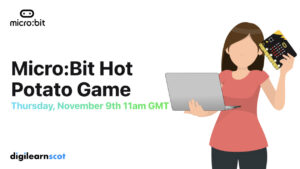 11am – Microbit Hot Potato Game
11am – Microbit Hot Potato Game
Micro:bit Educational Foundation
Dr Lorna Gibson
In this session, we will show you how to turn your micro:bit into a physical hot potato! In this game, you will start a timer with a random countdown of a number of seconds. When the timer is off, the game is over and whoever is holding the potato has lost!
We will also consider other simple games like that could be turned into a micro:bit program
Resources
- A device with access to MakeCode Microsoft MakeCode for micro:bit (microbit.org)
- micro:bits (if they have them).
- Sharing devices in pairs or small groups is absolutely fine (and actually appropriate for the hot potato game).
- Teacher joins team meeting and shares screen on projector
Interesting fact! The Hot Potato game is going to feature at some point in a future BBC program too!
9th November 2pm – Build a game with MakeCode Arcade
North Lanarkshire
Callum Croughan, Mary Frances Stewart, Zoe Shanks and Alistair Mackay – Digital School Digital Pedagogy Practitioners
Learners will build a maze game using MakeCode Arcade within an online web browser. Learners will explore aspects of computing science such as variables, algorithms, parallel programming and loops.
Resources Required:
- Teacher Support Pack – Step by Step guide to support all aspects of the lesson (to follow via email)
- Learners should have access a device that can access Microsoft MakeCode Arcade
Teacher joins team meeting and shares screen on projector
Join our 30 minute session to find out how you can provide practical, fun and creative early level computing science experiences across CfE.
In this information session, practitioners will learn about computational thinking and how our youngest of learners can explore computing science concepts and approaches – with absolutely no devices or programmable toys! This session is suitable for all practitioners across a range of settings. Unplugged activities can be adapted to suit the level of learner you are working with.
NOTE: This session is hosted via Microsoft Teams.
11am – Locked in the DATA Base: Data Science Escape Room
Data Education in Schools project at the University of Edinburgh
Kate Farrell and Jasmeen Kanwal
Briefing for Trainee DATA Agents: You were working late on paperwork from your recent DATA mission and you’ve realised that you’ve been locked in the base. Solve the puzzles to get out without setting off the alarm.
Description of learners’ task: Learners use graphs and tables of data about theme park rides to answer questions. The answers to the questions provide them with the alarm code to be able to escape the base.
Resources that learners will require
- Access to a calculator or calculator app
- Rollercoaster data sheets (printed or electronic) – one copy between 2-3 learners
- Questions Worksheet (printed or electronic) – one copy between 2-3 learners
- The resources are on our website: https://dataschools.education/escape/
There is also an optional pre-activity logic puzzle, also available on our website.
Children’s Create Along – Unplugged Explorations: Introducing early level computational thinking with Barefoot Computing
Isabella Lieghio, Education Consultant, Icon Learning/Barefoot Volunteer
Description
Join this 45 minute create along, online session with Isabella Lieghio as she introduces us to the wonderful FREE Computing Science learning materials from Barefoot Computing and takes us through one of the early years activities, step by step. This session is suitable for early and first level learners.
The activity will be about recognising, continuing and creating patterns from the ‘Winter Warmers’ activity.
Where do you see patterns in you home, garden, playroom, classroom?
We will share the printable resources with you, once you have signed up. Alternatively you can use any resources to create patterns during the create along (loose parts or natural materials such as leaves, conkers, pine cones, twigs, or various colours of playdough, small construction, sorting and counting resources).
You may even choose to wear a patterned item of clothing that day!
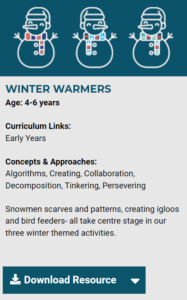
NOTE: This session is hosted via Microsoft Teams. (a Glow log in is not required)
Resources:
Please register for a free account with Early Years | EN | Barefoot Computing and watch the ‘Getting Started’ video for practitioners before the session.
Winter Warmers printable – this will be shared with you via email after sign up.

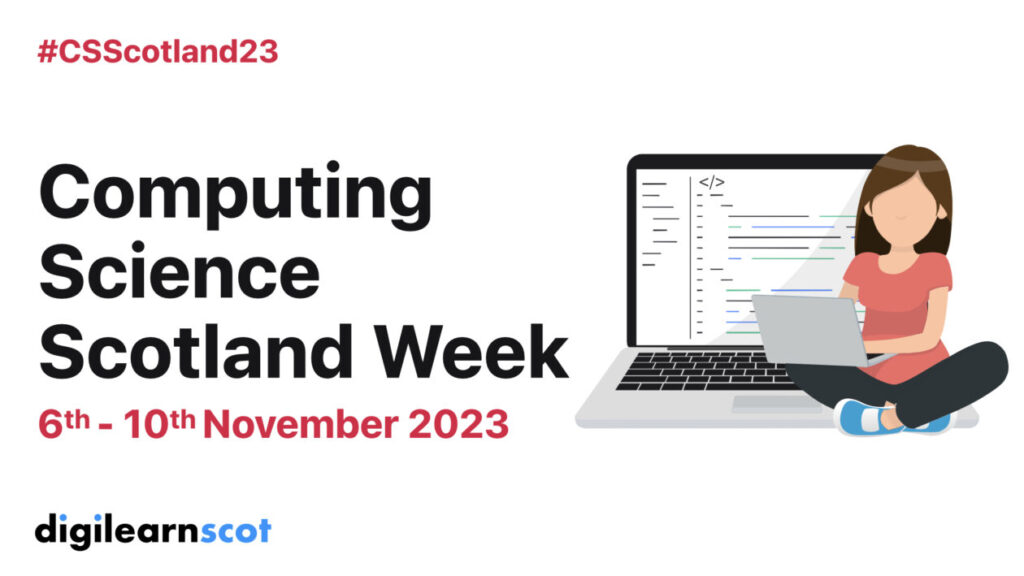
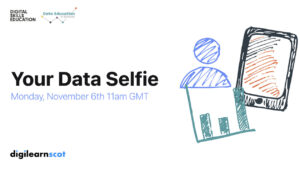
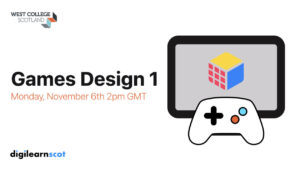
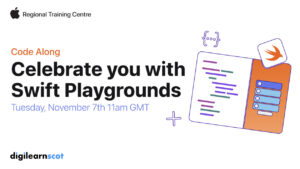
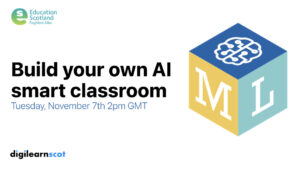
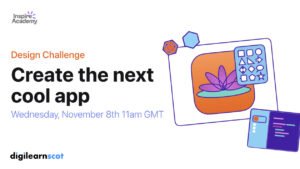
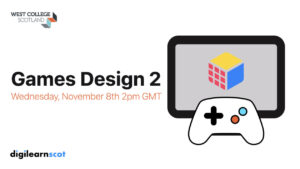
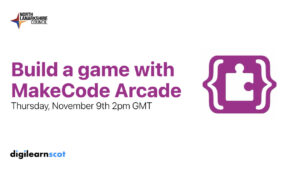
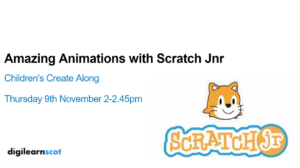
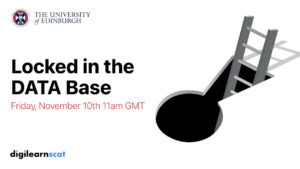
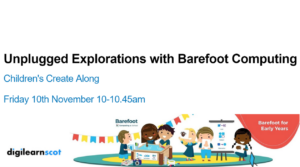

You must be logged in to post a comment.